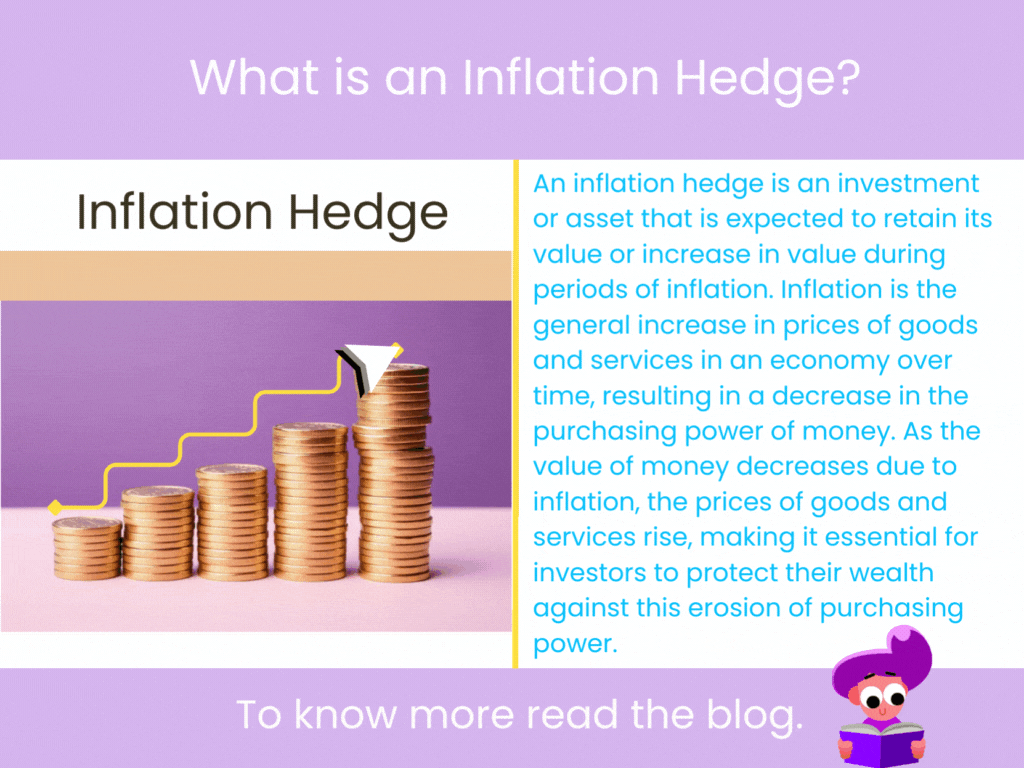What Is an Inflation Hedge?
An inflation hedge is an investment or asset that is expected to retain its value or increase in value during periods of inflation. Inflation is the general increase in prices of goods and services in an economy over time, resulting in a decrease in the purchasing power of money. As the value of money decreases due to inflation, the prices of goods and services rise, making it essential for investors to protect their wealth against this erosion of purchasing power.
Investors seek out inflation hedges to mitigate the negative effects of inflation on their investments. These hedges are designed to either maintain their real value or even appreciate in value as the general price level rises. Some common examples of inflation hedges include:
Real Estate: Real estate investments, such as properties and land, tend to appreciate in value over time and can act as a hedge against inflation. As the cost of living increases, demand for housing may also rise, leading to higher property values.
Commodities: Certain commodities like gold, silver, oil, and agricultural products have historically been used as inflation hedges. The prices of these commodities often rise during periods of inflation, as they are considered tangible assets with intrinsic value.
Stocks of Inflation-Resistant Companies: Some companies perform well during inflationary periods due to their ability to pass on increased costs to consumers. For example, companies in sectors like utilities, consumer staples, and healthcare may have products or services that are relatively immune to economic downturns and inflation.
Treasury Inflation-Protected Securities (TIPS): These are bonds issued by the government with the principal value adjusted for inflation. The interest payments and principal value of TIPS increase with inflation, providing investors with a guaranteed inflation-adjusted return.
Infrastructure Investments: Infrastructure assets like toll roads, airports, and utilities often have pricing power that can help them maintain value during inflation. Additionally, these assets may benefit from increased government spending during economic expansions.
Foreign Currencies and Precious Metals: Some foreign currencies and precious metals like gold and silver are seen as stores of value during periods of currency devaluation and inflation.
It's important to note that not all assets will perform equally well as inflation hedges in all situations. The effectiveness of an inflation hedge can depend on various factors, including the specific economic conditions, supply and demand dynamics, and government policies. Additionally, investors should consider their own financial goals, risk tolerance, and investment horizon when selecting assets as inflation hedges.


